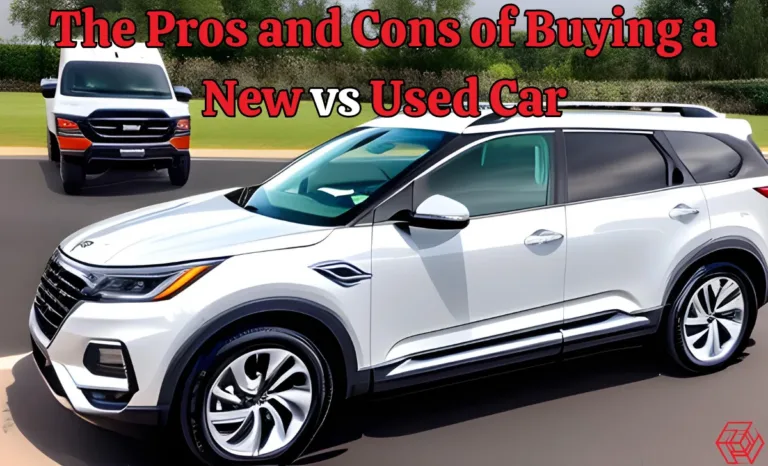
Purchasing a car is a significant decision, and one of the most crucial things to think about is whether to buy a new or used car. Understanding the benefits and drawbacks of each choice will help you choose one that best suits your requirements and financial constraints. We’ll examine the benefits and drawbacks of purchasing a new versus used car in this post.
Pros of Buying a New Car
Warranty: A manufacturer’s warranty, which is typically good for three to five years, is included with all new cars and covers any repairs that are required during that time. You won’t be responsible for covering the cost of repairs yourself, thus.
Customization: The color, trim level, and technological features that you want in a new car are all alternatives.
Reliability: You’ll have peace of mind knowing that new cars are less likely to break down or need pricey maintenance, which could ultimately save you money.
Cons of Buying a New Car
Cost: In general, new automobiles cost more than old cars, and as soon as you drive one off the lot, its value starts to decline.
Financing: It’s possible that you’ll have to finance a new vehicle, which entails making monthly payments and accruing interest.
Insurance: Your monthly costs may increase since new cars often demand more expensive insurance coverage than used ones.
Pros of Buying a Used Car
Cost: Used automobiles are often less expensive than new cars, and you may be able to discover one that meets your needs and fits within your budget.
Depreciation: Used automobiles have already absorbed the majority of their depreciation, so they retain their worth better over time.
Reduced Insurance Costs: Insurance prices for used automobiles are often lower than those for new cars, which can save you money in the long term.
Cons of Buying a Used Car
Warranty: Used automobiles may not come with a warranty, which means you will be liable for any repairs that are required.
Condition: Used vehicles may have more mileage or wear and tear, and you may need to spend on repairs or maintenance shortly after purchase.
Choices are limited: You may not be able to find a used automobile with all of the equipment and choices you like, and you may have to make some compromises on the vehicle.
Additional Considerations
Further variables to consider when considering whether to buy a new or used automobile, in addition to the advantages and negatives stated above.
Alternatives for Financing: If you’re thinking about financing your automobile, you should do your homework and compare interest rates and conditions from several lenders. Financing a used automobile may be more complicated or come with higher interest rates, which might increase your monthly expenditures.
Value at Resale: If you intend to sell your automobile in the future, you should think about its resale value. Because new automobiles depreciate quicker than secondhand cars, you may lose more money when selling them. But, if you want to retain the automobile for an extended period, resale value may be less essential to you.
Repairs and maintenance: Whether you buy a new or used automobile, you’ll need to spend on regular maintenance and maybe pay for repairs down the road. Before buying a secondhand automobile, get it inspected by a professional and request a thorough maintenance and repair history. This can assist you in identifying possible problems and estimating future repair costs.
Safety features include: Newer vehicles frequently include the most up-to-date safety systems, such as blind spot monitoring, rearview cameras, and lane departure alerts. While these amenities may be found in some secondhand automobiles, older models may not. If safety is a key issue for you, a newer vehicle may be worth considering.
Read: Pros and Cons of Buying a New vs Used Car
Final Thoughts
Choosing whether to buy a new or used automobile is a personal decision that is influenced by your own needs, budget, and preferences. While all solutions have advantages and disadvantages, it is critical to conduct research and take your time before making a selection. You may make an informed selection that meets your requirements and budget by analyzing the criteria listed above and considering additional aspects that are important to you.


